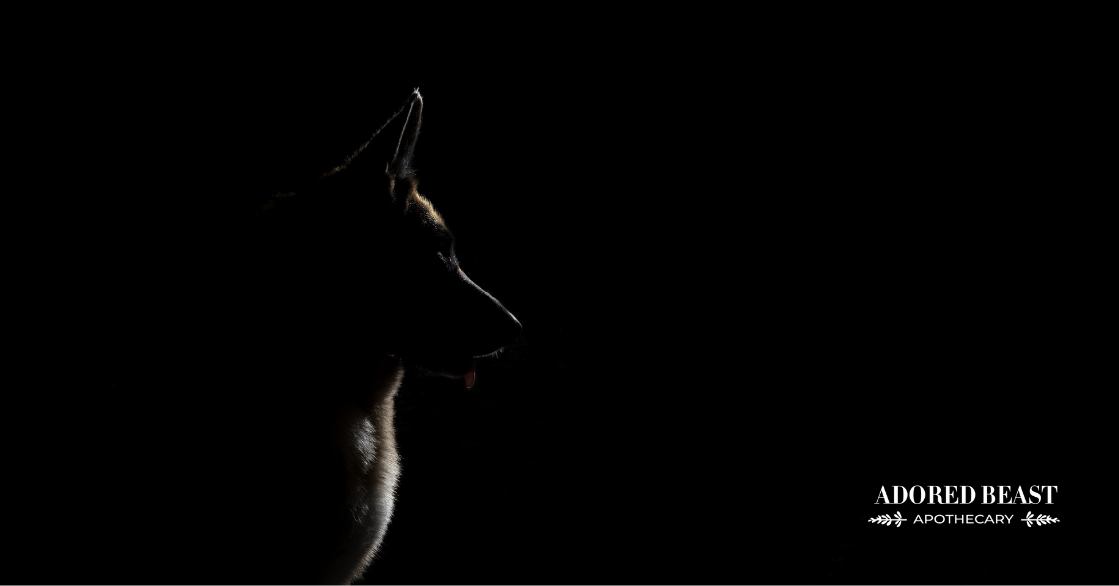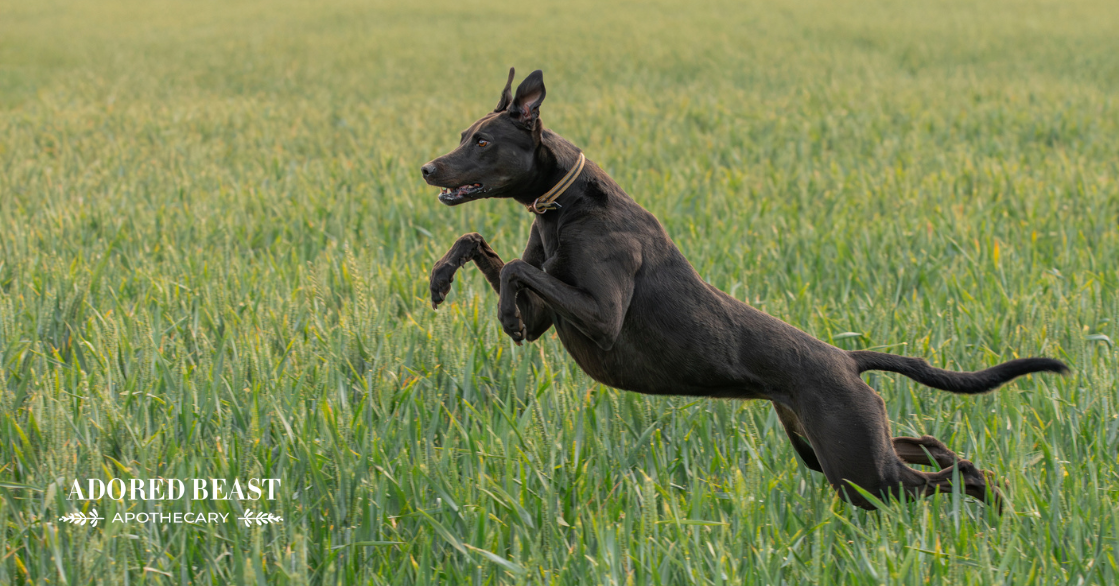Most of us know that our dogs’ vision differs from our own. Even though our eyes are very similar in structure, there are a few differences.
For example, our dogs can’t actually see objects as well as us, typical vision being about 20/75 (a dog has to be 20 feet away to see an object as well as a person can see at 75 feet away). They also have more rods in the retina, so they can see moving objects better than stationary ones.
But do those differences extend to night vision? We’ve all heard that dogs see really well at night, but is that really true? When I take my pups walking at night, are they seeing what I’m seeing, or is their vision actually impaired? Can dogs see in the dark?
Let’s take a look (sorry, couldn’t help myself there).
Can Dogs See in the Dark?
Yes, they definitely can see better at night than humans.
Firstly, the larger pupils allows more light to enter the eye. The pupil dilates and constricts to control the amount of light entering the eye. The larger the pupil, the more light that enters the eye, and thus the greater potential for vision.
Secondly, dogs have rod-dominated retinas. This means that the majority of their photoreceptor cells are geared toward seeing at night rather than during the day. These rods in their eyes make it easier for dogs to tell the difference between light and shadow. These rods also allow dogs to detect motion much faster, with up to 80 images captured per second compared to 60 images per second for humans.
Then there’s the tapetum lucidum, a membrane located behind the retina. It reflects light through the retina, increasing the light available to the photoreceptors. This is why animals see better at night, and it makes an animal’s eyes appear to glow at night when lights reflect from the animal’s eye.
All that said, though, dogs do still require some light in order to see, since that’s what stimulates the photoreceptor cells. Things like nightlights in the house, streetlamps in the neighbourhood, or even a bright moon in the sky provide the light needed. Also, experts believe dogs rely on both their sight and their other enhanced senses, particularly smell and hearing, to make their way around and interpret their surroundings in the dark.
Fun Fact: Cats can see even better in the dark than dogs. They are much more sensitive to light, and their tapetum lucidum reflects even more light. Cats also have a vertical-slit pupil that not only protects the retina in bright light but also allows more light to enter the eye in the first place.
[RELATED] Dog Eye Health: Recognizing Issues and Protecting Those Peepers
Why Do Dogs’ Eyes Glow at Night?
Chances are you’ve been outside with your pup at night and noticed that their eyes tend to give off an eerie, greenish-yellow glow when light hits them at night from headlights or a flashlight. You probably have photos of the glow on your phone. In our house, when we take those photos, we refer to them as laser beams…
That almost supernatural glow doesn’t come from a radioactive spider, don’t worry. It comes from the tapetum. The colour of the tapetum as it reflects light back and forth can vary from a green, blue, orange, or yellow hue.
Interestingly, some dogs, usually those with blue eyes, don’t have a tapetum. So, when you take a picture of these dogs, rather than getting that greenish-coloured reflection, you instead often get red eyes – coming from the red blood vessels in the back of the dog’s eyes.
So, can dogs see in the dark? Yes, your dog should be well-equipped to handle the late-night hours if you go for a late-night stroll or turn the lights off in the house at night.












